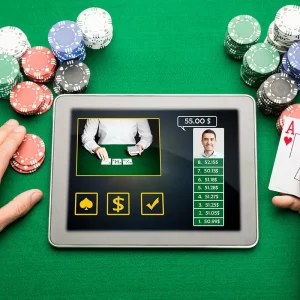Electronic sports, or e-sports, have gained significant popularity worldwide in recent years. The aviator game refers to competitive video gaming, where professional players compete against each other in various video game tournaments. While the focus of e-sports is often on gameplay and competition, there is a fascinating psychological aspect behind it.
An aviator game has captivated millions of players and spectators around the globe. The appeal lies in video games’ thrilling and competitive nature, combined with the opportunity to showcase skills and talents on a grand stage. E-sports tournaments attract massive online and offline audiences and offer lucrative prize pools.
Emotional Well-being and Resilience
- Stress Reduction and Relaxation:Engaging in e-sports can provide an outlet for stress relief and relaxation. Playing video games can serve as escapism, allowing individuals to temporarily disconnect from everyday pressures. This recreational gaming aspect can improve emotional well-being and overall mental health.
- Emotional Regulation and Coping Mechanisms:Video games often elicit various emotions, from excitement to frustration. Regular exposure to these emotional experiences can help individuals develop emotional regulation skills and learn effective coping mechanisms. Gamers can transfer these skills to real-life situations, better managing their emotions and maintaining mental resilience.
Social Interaction and Teamwork
- Building Communication Skills:E-sports often involve teamwork and collaboration. Effective communication is vital for coordinating strategies and executing gameplay tactics. Engaging in team-based e-sports can improve players’ communication skills, fostering clear and concise expression, active listening, and cooperation.
- Developing Leadership Qualities:Within e-sports teams, players may assume leadership roles, guiding their teammates toward success. Leading a team requires strong leadership qualities like decision-making, problem-solving, and motivation. Participating in e-sports can allow individuals to develop and hone these leadership skills.

- Fostering a Sense of Belonging:E-sports communities offer players a sense of belonging and camaraderie. Joining teams or being part of gaming communities provides social support and a shared interest, fostering friendships and connections. This sense of belonging can positively impact mental well-being, promoting feelings of acceptance and social integration.
Competitive Drive and Motivation
- Goal Setting and Achievement:E-sports provide a competitive environment where players set goals and strive for improvement. Working towards specific objectives and witnessing progress can boost motivation and self-confidence. Pursuing excellence in e-sports encourages individuals to set goals in other areas of life, fostering a growth mindset.
- Perseverance and Determination:Achieving success in e-sports requires perseverance and determination. Players must endure rigorous practice schedules, overcome setbacks, and continuously strive for improvement. The resilience developed in e-sports can transfer to other domains, helping individuals overcome challenges and setbacks in their personal and professional lives.




